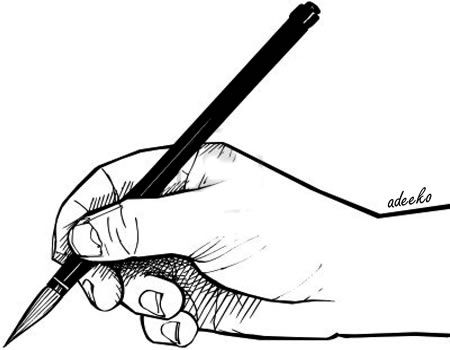ANYONE who has been watching just as I have been for some time, must like me have also noticed the fast-paced manner in which the world has been moving, or evolving. I mean the world around me as a Nigerian. For me, I seem to get a sense of disillusionment as the things that I had thought would go in certain directions actually went in a different direction, sometimes in the very opposite direction. Growing up as a Yoruba child, for example, I had seen the way old people around me valued their language and culture, and in particular the social ethos that informed the ways in which they conducted themselves. It is said that it takes a woman to bear a child but it takes a village to raise the child. This exactly was how I had grown up as a ‘Lagos girl’, even though, in my time, Lagos was considered the ‘black sheep’ among other surrounding ‘real culture’. The reason: Lagos is metropolitan in nature. At least, most people thought of the city in this manner. And truly, looking back now, I understand that this must have been due to the cosmopolitan nature of Lagos. I grew up seeing foreigners, most of whom were expatriates. For instance, I remember seeing on my way to school, showrooms belonging to a shoe company like Bata. The elderly folks would call the company Bàtà, a Yoruba word for footwear, obviously sharing a similar spelling.
As a school girl, I remember we would go to school in a large company. Parents would watch out for one another’s children. Most importantly, children or young ones in general never had cause to look elderly people in the eye. It didn’t matter if the elder was the party at fault. Even when English was supposed to be the official language, we interacted with English only in school; maybe also on the television when we watched our cartoons. Our parents mostly spoke the Yoruba language to us at school, ditto for the church. Indeed, our parents listened mostly to the local radio ‒ radio Lagos. This meant that we were surrounded with many a medium which ensured that our language and our culture filtered through our subconscious. However, we didn’t know this. The indigenous music that played on both the radio and TV, the church programmes and the folks plays all shaped the adolescents that we all grew into, and to a great extent the adults that we now are. But putting everything on a scale today, it all looks like a sharp transition between yesterday and today; or, maybe a slow cultural decay that had steadily crept upon us unnoticed ‒ the very reason for my incurable soliloquys that I have now decided to put down as my reflections on paper.
Where are those children of yesterday? To my own parents, even I am still a child. But having observed the extent of social, cultural and language decay around me today, I am convinced that there is truly a fire on the mountain. As a mother myself, I see contemporaries of my own child not being able to express themselves in the simplest of sentences in their own mother tongue. In fact, it took an act of legislation by the Lagos State government to make Yoruba a statutory school subject at all levels and a means of communication to drive home this fact. Many adults and strategic ‘social watchers’ have indeed lost touch with their roots, not on account of leaving their country or Africa for another clime, but by merely becoming slaves to popular culture, ‘vogue’ or ‘trends’. Obviously, we need no soothsayer to show that we now live in an age where sensible countries are now doing everything to keep the sanctity and integrity of their own indigenous cultures and languages. The United nations recently celebrated the fact that reggae has now been recognised as a form of cultural heritage. The Jamaican patois could not have attained its celebrated status without the influence of reggae. The Australian people and their parliament have done everything to ensure the cultural history and survival of the aboriginal population of their country are preserved for all time. But today, it takes the measured effort of the BBC, for instance, to give a digital and global presence to Nigeria’s Yoruba, Igbo, Hausa and Pidgin languages by hosting these as different online interactive radio services.
Where are we, dear Africa! Many will agree with me that looking forward into the future based on current trends calls for deeper reflections on the attitudes. Where will many African countries end if the current lackadaisical attitude towards their natural heritages continue? It’s pitiful that many African parents even pride themselves in the fact that their children speak only foreign languages. Identities are steadily getting lost in and through language. The economic conditions in Africa have forced many young people to a vow of not remembering, let alone returning home once they get the opportunity to ‘escape’ out of their ailing continent. Many things are already wrong, but I feel strongly that more things are wrong with our cultural orientation. We seem to have forgotten that our science, technology and so on are hidden in our philosophy, in turn locked in our language. It is through language that we reason and interact with the world around us. But when the foundations of language are eroded, what world do we have left to interact with, or reason about? The future of our self-preservation seems bleak. Where do we go from here?
- Adekoya, a graduate of Linguistics, African and Asian Studies, lives in Lagos.






